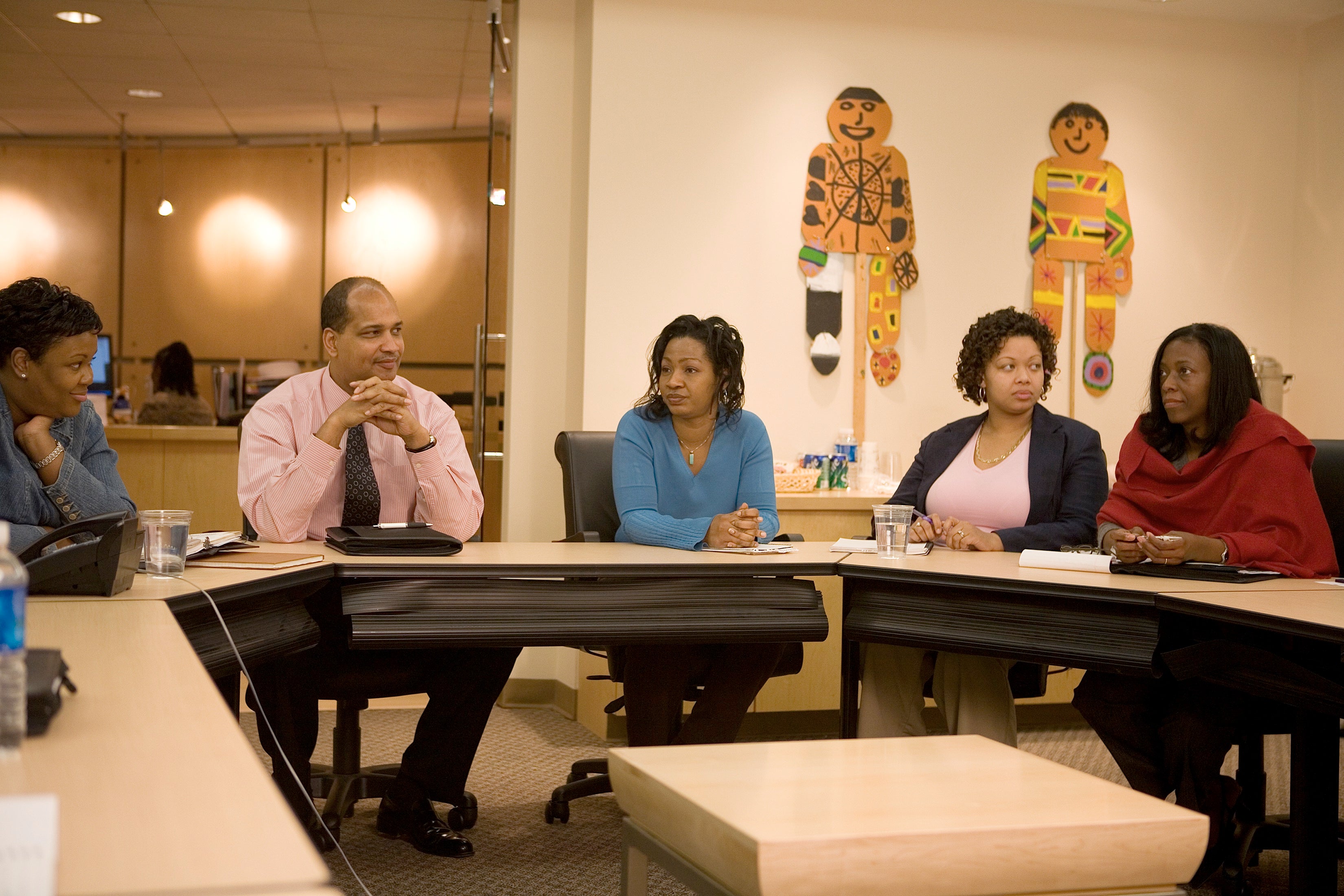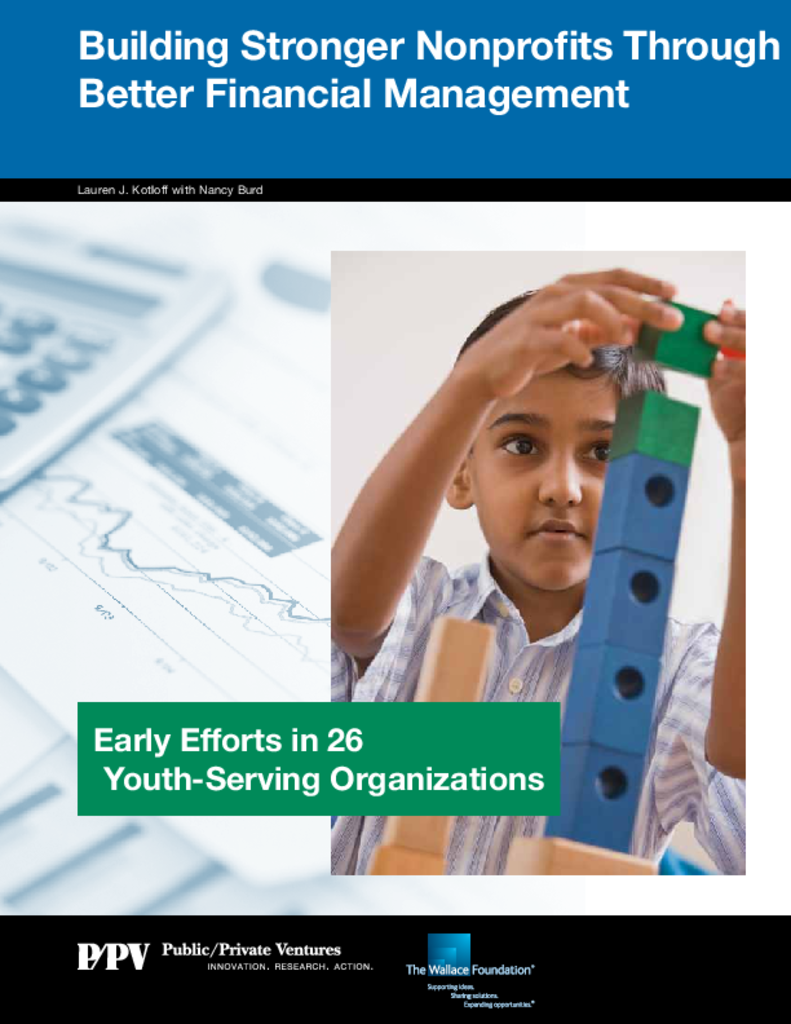Breadcrumb
- Wallace
- Reports
- Building Stronger Nonprofits Thr...
Building Stronger Nonprofits Through Better Financial Management
Early Efforts in 26 Youth-Serving Organizations

Summary
How we did this
This report describes study findings from the early part of a Wallace Foundation project to help build the financial muscle of 26 leading afterschool providers in Chicago. Participating organizations received financial management training and peer networking. They used one of two models that differed in intensity and the balance of individual vs. group-based training and support. A second report provides study findings from the later part of effort.
The Strengthening Financial Management in Out-of-School Time (OST) initiative grew out of The Wallace Foundation’s commitment to improving the quality of services for youth during non-school hours. The foundation's work with nonprofit organizations revealed that even successful nonprofits face financial management challenges that can affect their mission-related work.
This four-year initiative set out to improve the financial management systems of 26 well-respected OST-providing nonprofit organizations in Chicago. It offered their key staff training and support. It also took on how to reform funder (both public and private) practices that strain OST organizations’ financial management capacity. This report highlights early results.
Participating organizations received financial management training and peer-networking opportunities. They used one of two models that varied in intensity and in the balance of individual vs. group-based training and support.
From interviews with experts on nonprofit financial management, Wallace identified three practices essential to a nonprofit organization’s ability to be financially strong and effective:
- Understanding the true costs of all programs to develop accurate, realistic budgets
- Monitoring the financial status of individual programs and the organization as a whole on an ongoing basis
- Meeting expenses in a timely manner.
To implement these key practices, an organization should look to develop:
- Strong financial management resources, both human and material
- Procedures and methodologies to generate key indicators of its financial status, account for overhead costs and alert staff about available cash as well as shortfalls
- Systems to effectively communicate financial information among financial and nonfinancial staff.
Early on the organizations participating in the initiative faced significant challenges in each of these areas. For example, their finances were often hindered by having too few staff to handle the volume of work, staff with less-than-optimal analytical and strategic skills, or staff configurations that created inefficiencies in work flow.
The majority of the organizations either needed to update or better use their financial software so that they could reduce inefficiencies and generate more accurate and reliable financial information. Most of the organizations discovered a need to create better financial systems and procedures as well.
Key Takeaways
- The Strengthening Financial Management initiative discovered that many nonprofit out-of-school-time organizations faced financial management challenges that affected their ability to perform mission-related work.
- For improved financial planning, organizations need to understand the true cost of programs, monitor expenses, and pay their bills in a timely manner.
- Organizations should focus on creating strong financial management resources, implementing systems to monitor their finances, and developing ways to communicate about their finances across the organization.
- Changes in the larger funding environment could help produce deep and sustained improvements in nonprofits’ financial management capacity.
Materials & Downloads

Improving the quality of OST programs—indeed of all social programs—can be achieved only if the leaders are not consumed with the very survival of their programs.

